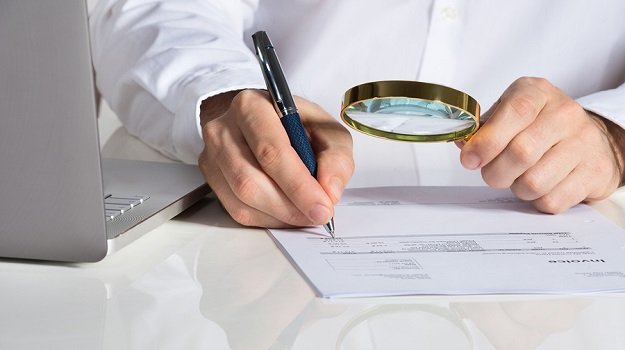Forensic Accounting Audit: Protecting Your Financial Future and Stopping Fraud
In today’s financial landscape, businesses and individuals face significant risks from fraud, financial mismanagement, and accounting discrepancies. A forensic accounting audit is a powerful tool used by professionals to investigate and uncover such issues, providing organizations with the insights they need to safeguard their financial well-being. Whether you’re running a small business or managing a large corporation, forensic accounting audits help identify hidden fraud, ensure regulatory compliance, and protect your assets.
The rise of fraudulent activities, from embezzlement to misreporting financial transactions, has made forensic accounting an essential practice for businesses. In this blog, we’ll explore what forensic accounting audits involve, how they can be used to stop fraud, and why they are crucial for your financial safety. We’ll also share expert insights on how you can benefit from such audits.
Let’s dive into the world of forensic accounting audits and explore how they help you take control of your financial future.
Understanding Forensic Accounting Audits: The Basics
A forensic accounting audit is a specialized examination of a company’s financial records. Unlike regular audits, which primarily focus on assessing financial statements and ensuring compliance with accounting principles, forensic accounting digs deeper. It involves investigating financial discrepancies and potential fraud, often to gather evidence for legal proceedings. Forensic accountants use their investigative skills to look for irregularities, patterns of fraud, or signs of financial manipulation.
These audits are typically employed in situations where there are concerns about financial mismanagement, embezzlement, or misconduct. For example, a forensic accounting audit could be triggered by a whistleblower report, a suspicion of accounting fraud, or during divorce proceedings where asset misrepresentation is suspected. Forensic auditors don’t just review the numbers—they perform a detailed analysis of financial transactions, looking for any signs of intentional wrongdoing.
Expert opinion: “Forensic accounting audits are an essential tool in today’s financial landscape. They offer businesses a way to protect themselves from fraud, reduce risks, and ensure they are operating ethically and legally. The process can be thorough and time-consuming, but the insights gained are invaluable.” – John Smith, Certified Forensic Accountant
How Forensic Accounting Audits Stop Fraud: The Key Role of Fraud Stoppers
Fraud is one of the most serious financial threats that any business can face. A forensic accounting audit acts as a “fraud stopper” by identifying and stopping fraud before it can escalate into something more damaging. Forensic accountants are trained to detect fraudulent activities such as asset misappropriation, financial statement fraud, and corruption. By applying specialized techniques, forensic auditors can trace fraudulent transactions, uncover hidden assets, and identify financial misstatements.
Fraud stoppers play a pivotal role in forensic accounting audits. These are the professionals who specialize in detecting fraudulent activities within a company’s finances. They are experts at identifying red flags, analyzing financial data, and conducting thorough investigations. Their primary responsibility is to uncover financial irregularities that could indicate fraudulent activities, thus helping businesses and individuals take immediate action to stop fraud.
Forensic auditors use a variety of tools and techniques to detect fraud. They may analyze financial data, cross-check transactions, interview employees, and review internal controls. These measures help identify any suspicious activity, such as unauthorized transactions, misreported expenses, or financial records that don’t align with the company’s operational activities.
Expert opinion: “Fraud stoppers, or forensic accountants, use sophisticated techniques to detect fraud early on. The earlier fraud is detected, the lower the financial damage. Forensic audits not only uncover fraud but also prevent it from spreading further within the organization.” – Sarah Williams, Fraud Prevention Expert
The Process of a Forensic Accounting Audit: What to Expect
A forensic accounting audit is a comprehensive, investigative process that can vary based on the complexity of the case. However, there are a few standard steps involved in any forensic audit. Here’s what you can expect:
- Engagement and Planning: The process begins with the engagement of a forensic accountant. The forensic accountant meets with the client to understand the concerns, objectives, and scope of the investigation. A plan is then formulated that outlines the audit’s goals, timeline, and methodology.
- Data Collection: During this phase, the forensic accountant gathers relevant financial documents, transaction records, and any other information related to the case. The goal is to collect a comprehensive set of data that provides a clear picture of the company’s financial situation.
- Analysis and Investigation: Forensic auditors then analyze the collected data to uncover irregularities. This includes identifying any discrepancies, cross-referencing financial transactions, and conducting interviews with key personnel. Forensic accountants use specialized software tools to dig deeper into the data, looking for patterns or red flags that could indicate fraud.
- Reporting: Once the analysis is complete, the forensic accountant prepares a detailed report outlining their findings. This report may include recommendations on how to rectify any issues, as well as suggestions on improving internal controls to prevent future fraud.
- Legal Proceedings (if applicable): In some cases, forensic audits lead to legal action. If fraud is uncovered, the forensic accountant may be called upon to provide expert testimony in court or assist with legal proceedings.
The forensic accounting audit process ensures that all potential fraud is uncovered and addressed. By providing a comprehensive analysis of financial data, these audits help organizations make informed decisions about how to manage their finances and protect their assets.
Expert opinion: “A forensic audit is not a simple review of financial statements. It is a deep dive into a company’s financial history and transactions, which can uncover hidden fraudulent activities. The results of a forensic audit can often make the difference between avoiding financial ruin and suffering long-term consequences.” – Michael Davis, Forensic Accounting Specialist
The Benefits of Forensic Accounting Audits for Businesses and Individuals
Forensic accounting audits provide numerous benefits for both businesses and individuals. Let’s explore the most important advantages:
- Fraud Detection and Prevention: The most obvious benefit of a forensic audit is its ability to uncover fraud. Whether it’s a case of employee theft, embezzlement, or financial misreporting, forensic accounting audits help detect and prevent fraud before it can cause significant damage to your business or personal finances.
- Improved Financial Transparency: Forensic audits ensure that your financial records are accurate and transparent. By thoroughly reviewing all financial documents and transactions, forensic auditors help ensure that your business operates with integrity, which can enhance your reputation and build trust with stakeholders.
- Regulatory Compliance: A forensic accounting audit helps businesses stay compliant with financial regulations. By ensuring that all financial activities are properly documented and transparent, businesses can avoid fines, penalties, and legal complications arising from non-compliance.
- Asset Protection: Forensic audits are also essential for protecting valuable assets. In cases of divorce or business dissolution, forensic accountants can ensure that assets are accurately reported and fairly divided. They can also assist in identifying hidden assets or income streams that might otherwise go unnoticed.
- Strengthened Internal Controls: A forensic accounting audit often reveals weaknesses in a company’s internal controls. By identifying these vulnerabilities, businesses can take steps to strengthen their processes and prevent future fraud.
Expert opinion: “The benefits of forensic accounting audits are far-reaching. They help businesses identify fraud early, improve financial transparency, and ensure compliance with regulations. The audit process also serves as a critical tool in protecting assets and strengthening internal controls, which are vital for long-term business success.” – Laura Brown, Forensic Audit Consultant
Why Choose Forensic Accounting Audits for Your Business?
Forensic accounting audits are a vital tool for businesses that want to protect their financial interests and safeguard against fraud. But why should you choose forensic accounting audits over traditional audits or other financial assessments?
- Comprehensive Fraud Detection: While traditional audits focus on ensuring compliance with financial reporting standards, forensic accounting audits dig much deeper. They are designed specifically to detect fraud, and forensic accountants use specialized methods to uncover hidden financial discrepancies.
- Legal Expertise: Forensic accountants are often called upon to provide expert testimony in legal proceedings. If your company is facing a lawsuit, a forensic accounting audit can provide valuable evidence to support your case.
- Tailored Solutions: Forensic audits are tailored to meet the specific needs of each business. Whether you are investigating a specific fraud case or conducting a general audit to improve your financial practices, forensic accountants will customize the audit to suit your needs.
- Long-Term Protection: By identifying fraud and financial irregularities early, forensic accounting audits provide long-term protection for your business. With the information gained from an audit, you can take proactive measures to reduce the risk of future fraud and improve financial transparency.
- Peace of Mind: Knowing that your business is protected from fraud and financial mismanagement brings peace of mind. A forensic audit can help you sleep easy, knowing that your financial records are being scrutinized by experts who are looking out for your best interests.
Conclusion: Ensure Financial Integrity with a Forensic Accounting Audit
Forensic accounting audits are a critical tool for stopping fraud, ensuring financial integrity, and protecting your business. With the help of skilled fraud stoppers, businesses can detect and prevent fraudulent activities, improve financial transparency, and safeguard their assets. Whether you’re concerned about potential fraud or want to ensure that your financial records are above board, a forensic accounting audit provides the insights you need to protect your financial future.
If you’re ready to take control of your financial integrity, it’s time to invest in a forensic accounting audit. Contact us today at (877)-399-2995 or visit Mortgage Audits Online to learn more about how forensic accounting can help you. Don’t wait—ensure your business’s financial safety now!






